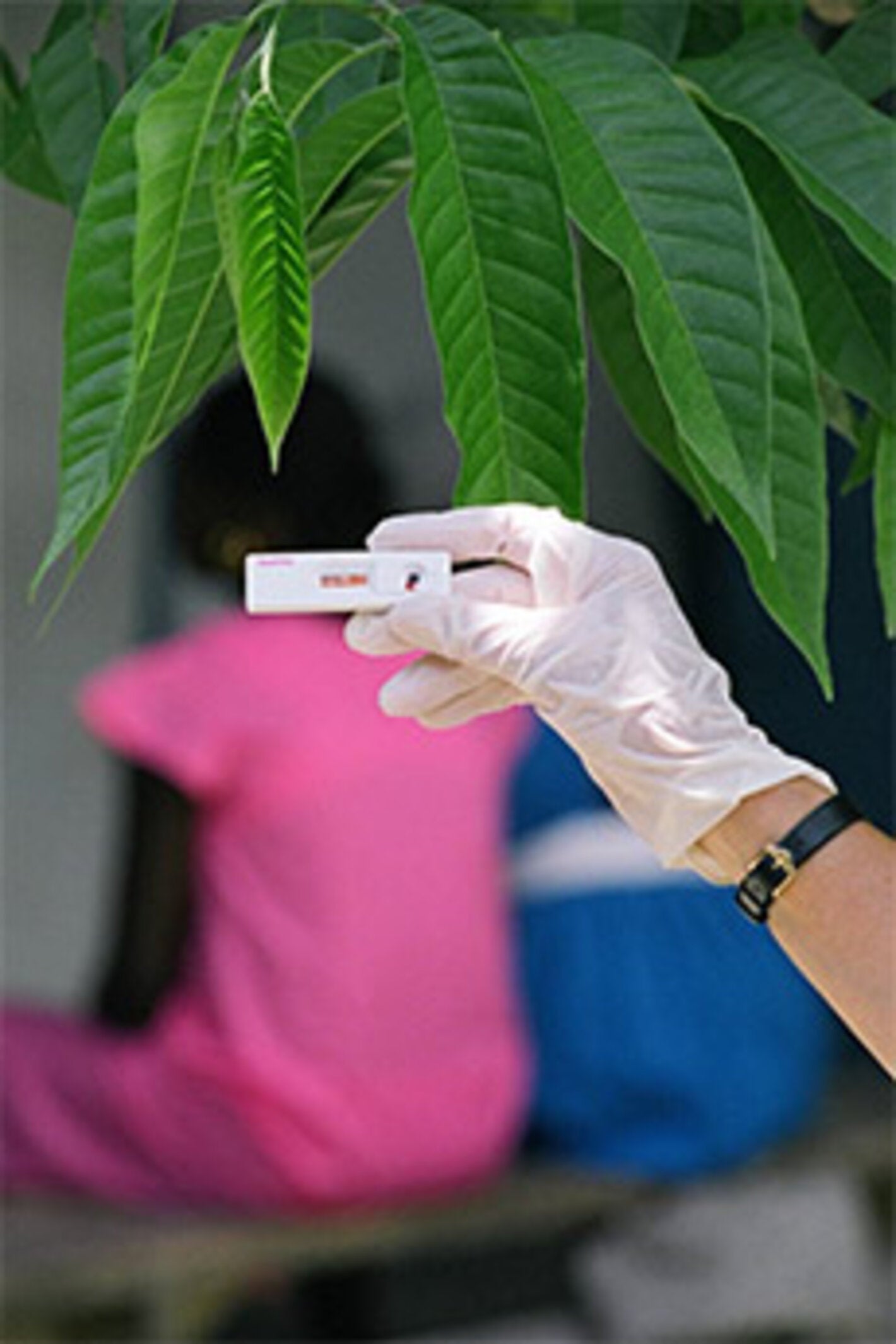
The only drug to treat and to prevent mother-to-child transmission of syphilis
27 December 2017: Syphilis is unique among sexually transmitted diseases in that it remains curable with a single dose of penicillin (with no documented risk of resistance), formulated for this purpose as long-acting Benzathine Penicillin G (BPG). WHO estimates that every year, 930 000 pregnant women have probable active syphilis (transmissible during pregnancy) which results in approximately 350 000 adverse birth outcomes (including organ deformities and prematurity) annually. Tragically, neonatal death and stillbirth account for more than half of those adverse birth outcomes.
BPG is the only recommended treatment to prevent mother-to-child transmission of syphilis. A single dose of low-cost BPG ends syphilis infectivity in adults with no documented risk of antibiotic resistance. In 2015, however, anecdotal reports began to reach WHO, indicating country-level shortages of BPG. In response to these reports, 114 countries and territories were approached to help determine the scale of the problem during the time period 2014-2016 and to describe factors contributing to the shortages.
About the study
The study was carried out by HRP the Special Programme of Research, Development and Research Training in Human Reproduction in WHO’s Department of Reproductive Health and Research and the Clinton Health Access Initiative (CHAI). It used a combination of data collection methods to collect data globally from a range of low-, middle- and high-income countries.
Findings
Extent of the shortages
Of the 114 countries approached, 95 had evaluable information. Of these 95 countries, 39 (41%) reported a BPG shortage, and 56 (59%) reported no BPG shortage. Ten of the 95 countries indicated the use of alternative treatments including ceftriaxone, amoxicillin, and erythromycin. Of these 10 countries 3 reported exclusive use of antibiotic alternatives and 7 reported the use of alternatives in addition to reporting BPG shortages. These alternatives, however, either do not cross the placenta to prevent mother-to-child transmission of syphilis or are much less effective than BPG for treating maternal syphilis.
Countries with reported shortages of benzathine penicillin G 2014–2016
Issues around supply and demand
As an off-patent medication, BPG is currently sold at a very low price. CHAI estimated that it is sold on average at a cost of US$0.11 for a 1.2 million international unit (IU) dose and US$0.20 for 2.4 million IU dose in low-and middle-income countries (LMICs). Some countries additionally set a cap on the price at which BPG can be sold which also keeps the price low. However, as an injectable drug, BPG must be manufactured under sterile conditions which require significant financial investment in specialised manufacturing infrastructure. This economic position limits the enthusiasm for commercial manufacturers to enter or even continue in the BPG market. In addition, there are also concerns about the quality of manufacturing. None of the 3 current API manufacturers of BPG has market authorization from a global regulatory authority, such as WHO, and 2 have experienced quality issues in the past few years which have disrupted supply.
While manufacturers do have the capacity to meet global demand for BPG, some manufacturers enforce minimum purchase order quantities which can be challenge, particularly for smaller countries, where demand for BPG is often not high enough to meet this minimum.
While supply problems affect the availability of BPG, issues such as underestimating need (stemming from a lack of product usage data at the facility level), inflexible purchasing cycles, a lack of funding and limited BPG product registrations can also have an impact on availability and contribute to the global shortage.
Next steps
WHO guidance, as part of the global plan for the elimination of mother-to-child transmission of syphilis, recommends that 95% of pregnant women who receive antenatal care should be tested for syphilis, and 95% of those women diagnosed should be treated. These targets are only achievable, and a continuation of recent progress is only possible, if the availability of BPG can be ensured.
To help ease issues around manufacturing, steps to harmonize product quality and specification standards among manufacturers are needed. A common product specification accepted by all major stakeholders would lower costs and allow for product substitution should any single supplier discontinue manufacturing. In 2016, therefore, WHO applied for BPG to be listed as a “prequalified” medication and invited manufacturers to apply for WHO prequalification which will assure the quality of the medication.
On the demand side, strengthening country level supply-chain infrastructure to improve national BPG forecasting and procurement needs to be a health system priority. Awareness about BPG, including the broad range of conditions treatable with BPG, needs to be improved, along with a better understanding of what steps can be taken to mitigate stock outs or shortages.
Testing for, and treatment of syphilis needs to be a public health priority. BPG is the only antibiotic known to cross the placenta and prevent mother-to-child transmission of syphilis making healthcare worker training on the WHO-recommended treatment of syphilis, particularly in pregnant women, critical. Training for healthcare providers also needs to address a number of misconceptions about BPG related to it being a poor quality drug with an elevated risk of adverse events.



